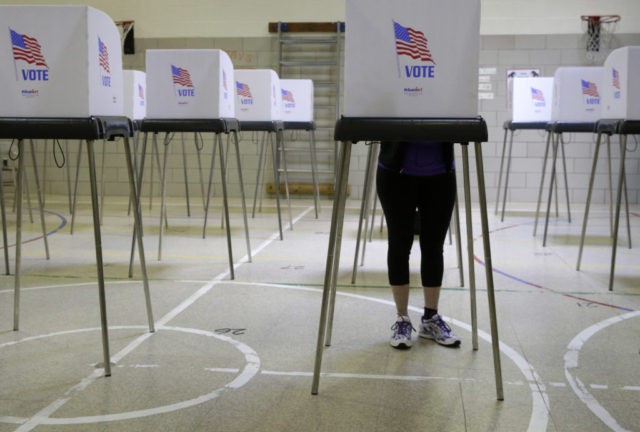Texas’ photo voter identification law was ruled discriminatory under the Voting Rights Act Wednesday by the U.S. Fifth Circuit Court of Appeals.
The full panel of justices, long considered the most conservative federal appellate court in the nation, noted in part that:
“As the State would have it, so long as the state can articulate a legitimate justification for its election law and some voters are able to meet the requirements, there is no Section 2 violation … This argument effectively nullifies the protections of the Voting Rights Act by giving states a free pass to enact needlessly burdensome laws with impermissible racially discriminatory impacts.”
Texas Governor Greg Abbott circulated the following statement shortly after the decision:
“The 5th Circuit rightly reversed the lower court’s finding of discriminatory purpose, but wrongly concluded the law had a discriminatory effect. Voter fraud is real, and it undermines the integrity of the election process.”
Texas Attorney General Ken Paxton responded shortly after the ruling:
“It is imperative that the State government safeguards our elections and ensures the integrity of our democratic process. Preventing voter fraud is essential to accurately reflecting the will of Texas voters during elections, and it is unfortunate that this common-sense law, providing protections against fraud, was not upheld in its entirety.”
The appellate court maintained that the law was not passed with discriminatory intent, nor is it designed as a poll tax, effectively removing all constitutional claims against it. The Court further ruled that the lower district court must put in place an “interim remedy” to mitigate the “discriminatory effects” some may feel from the law:
“The district court’s immediate responsibility is to ensure the implementation of an interim remedy for SB 14’s discriminatory effect that disrupts voter identification rules for the 2016 election season as little as possible, yet eliminates the [Voting Rights Act] Section 2 discriminatory effect violation.”
The Court cautioned that the district judge “ensure that any remedy enacted ameliorates SB 14’s discriminatory effect, while respecting the Legislature’s stated objective to safeguard the integrity of elections by requiring more secure forms of voter identification.”
Breitbart Texas recently reported on the background on the case:
Shortly after the U.S. Supreme Court struck down a portion of the Voting Rights Act (VRA) that kept Texas and more than a dozen other states and jurisdictions under the thumb of the DOJ — with administrative veto power over any new election law — voter ID became enforceable in time for the 2013 constitutional election. A coalition of left-leaning groups to include the NAACP and Fort Worth area Congressman Marc Veasey (D) brought a lawsuit challenging the law as violating the 14th and 15th Amendments and the VRA’s ban on poll taxes. Obama-appointed Judge Nelva Gonzales ruled in October 2014 that the law was intentionally enacted to discriminate against minorities and could impact more than 600,000 Texans in the process.
Upon initial appeal, a three-judge panel of the Fifth Circuit reversed Gonzales’ ruling in part in 2015 noting that the law was not clearly passed within discriminatory intent, but could harm minorities all the same. In May 2016, the full Circuit held a second hearing on the matter, leaving The Washington Post with the impression that “there did not seem to be much support for striking down the law or blocking its use in November’s presidential election.” The paper noted that Texas Solicitor General Scott A. Keller rejected any notions that the law could be blamed for reduced turnout in any of the three statewide contests held since enactment.
…
An emergency appeal to the Supreme Court for the losing party will likely prove a risky play due the probability of a 4-4 deadlock, reverting to the previous ruling. The U.S. Supreme Court held in 2008 that voter ID laws support a recognized state interest in protecting against voter fraud before a significant amount occurred, however.
Texas State Senator Charles Perry (R-Lubbock) offered a promise to seek a legislative solution to the “discriminatory effects” found by the Court in a statement submitted to Breitbart Texas:
“Today an unelected federal court struck down key components of Texas’ Voter ID law against the will of the people. I was proud to co-author this law as a freshman legislator and fought hard for its passage. In the upcoming session, I am confident we will be able to craft legislation in compliance with the court’s findings to ensure we meet constitutional requirements while protecting election integrity at the ballot box.”
Houston-based True the Vote argues that a weakened voter ID law requires that a “new generation” of election volunteers are necessary.
“However, recent court actions to water down these laws will only invite more chicanery in the least. Election integrity policies alone do not prevent against voter fraud and irregularity. Our polling places must be operated and observed by Americans who understand the rules and are willing to enforce them.”
This article will be updated as Texas officials and other stakeholders offer public statements on the matter.
A copy of the ruling can be found here.
Logan Churchwell is the Assistant Editor and a founding member of the Breitbart Texas team. You can follow him on Twitter @LCChurchwell.
Editor’s note: Logan Churchwell serves as the Communications Director for Houston-based True the Vote – a nonprofit that attempted to intervene in defense of the voter ID law in 2013.

COMMENTS
Please let us know if you're having issues with commenting.